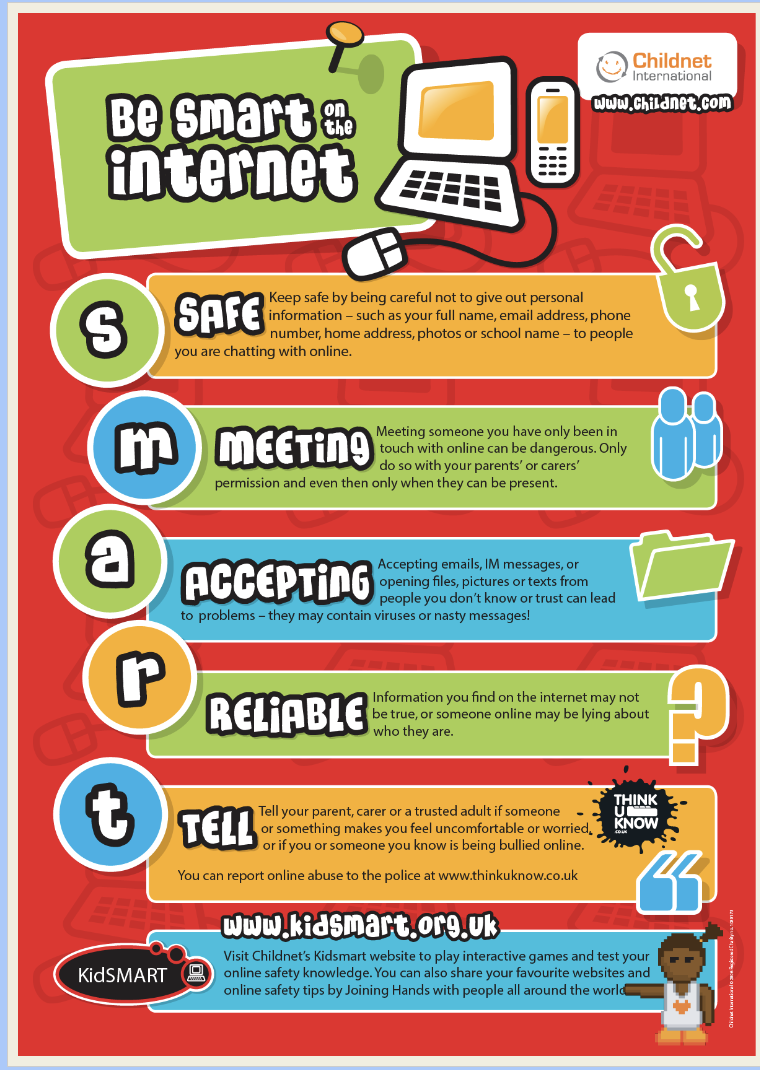Online Safety- for Parents
Online Safety is an important part of keeping children safe at St James' Primary School. We have extensive security measures in place in school, which are monitored both internally and externally, to help safeguard pupils from potential dangers or unsuitable material. Any Online Safety incidents are recorded and managed in accordance with our Online Safety policy. Online Safety is taught to all pupils explaining and demonstrating how to stay safe and behave appropriately online.
We can only be successful in keeping children safe online if we work with parents to ensure the Online Safety message is consistent. It is important that parents speak to their children about how they can keep safe and behave appropriately online.
It’s essential to be realistic - banning the Internet or technology will not work, and it often makes a child less likely to report a problem. Education around safe use is essential.
- Talk to your child about what they’re up to online. Be a part of their online life; involve the whole family and show an interest. Find out what sites they visit and what they love about them, if they know you understand they are more likely to come to you if they have any problems.
- Set up your own family agreement for using the internet. Why not use this template from Child Net to help you.
- Use parental controls on all devices that link to the internet, such as the TV, laptops, computers, games consoles and mobile phones.
- Keep all equipment that connects to the internet in a family space. For children of this age, it is important to keep internet use in family areas so you can see the sites your child is using and be there for them if they stumble across something they don’t want to see.
- Know what connects to the internet and how. Nowadays even the TV connects to the internet. Make sure you’re aware of which devices that your child uses connect to the internet, such as their phone or games console. Also, find out how they are accessing the internet – is it your connection, or a neighbour’s wifi? This will affect whether the safety setting you set are being applied.
- Go through the SMART internet rules with your chil
INFORMATION WEBSITES - CLICK ON THE LINK
CEOP (The Child Exploitation and Online Protection Centre) delivers a multi-agency service dedicated to tackling the abuse and exploitation of children in the real and ‘e’ world. Often it is referred to as an online 999. By clicking on the button, young people and parents can get advice on a range of issues such as viruses, hacking and dealing with bullying online.

Vodafone have produced a Digital Parenting Magazine which informs parents about the various technologies children are accessing today. https://www.vodafone.co.uk/mobile/digital-parenting/digital-fairytales
NSPCC - Have useful documents and information on how to talk to your child about being safe in the virtual world: https://www.nspcc.org.uk/keeping-children-safe/online-safety/talking-child-online-safety/
Safer Internet guides for apps: https://saferinternet.org.uk/guide-and-resource/social-media-guides

